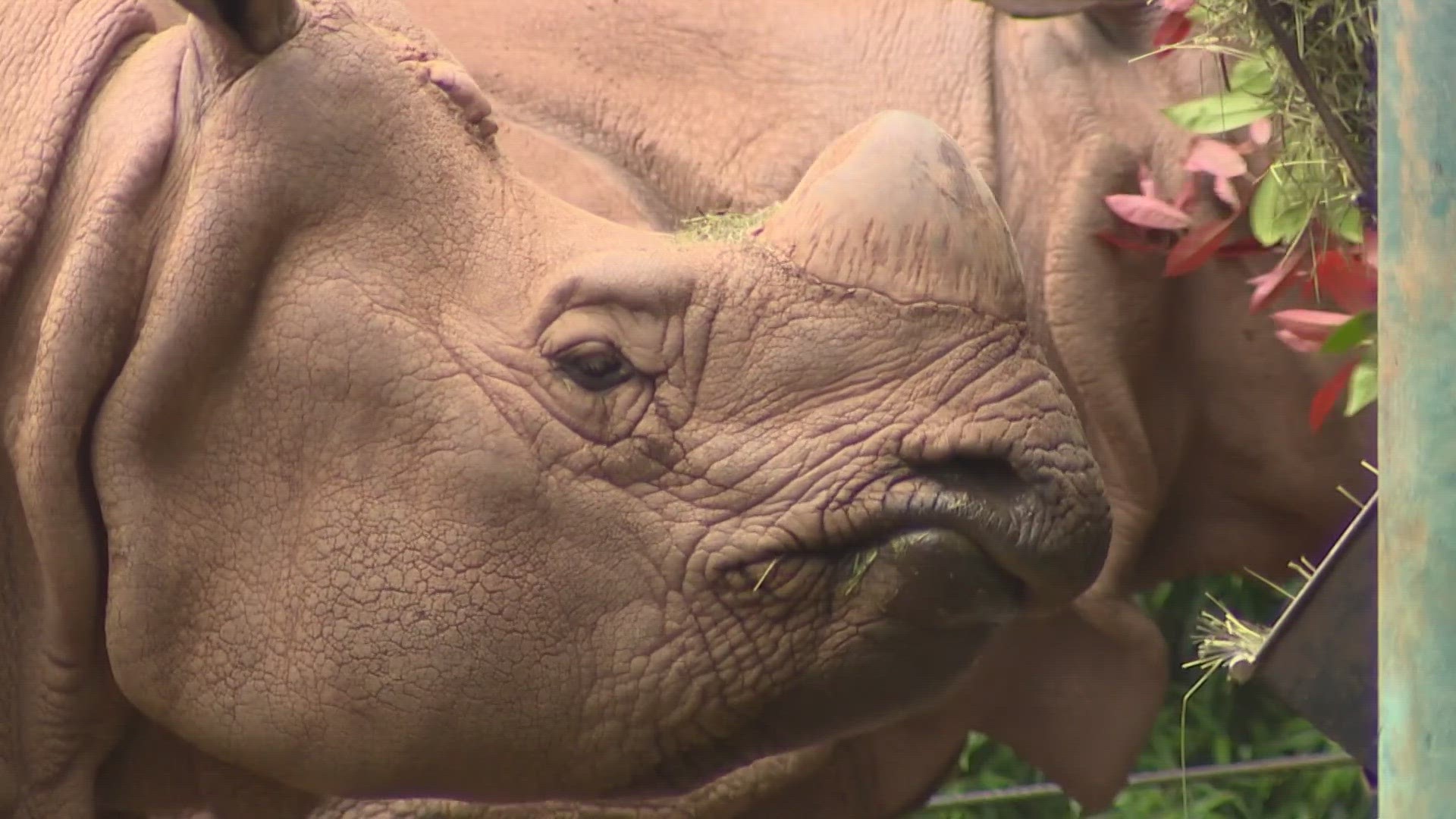SEATTLE — Animal poop in some of the enclosures at Woodland Park Zoo is not just for shoveling aside and tossing out. The poop, or "Zoo Doo," is part of an on-site compost program.
It's been in place since the 1980s but it's grown in the zoo's new sustainable efforts over the decades. This includes pesticide-free gardening, compostable and recyclable products in food service locations, planting various flowering and pollinating plants, trees for carbon sequestration, water-saving protocols, and solar panels on many of the zoo grounds buildings.
The zoo is also working on retrofitting and upgrading outdated appliances to ensure its the most energy and electric efficient as possible.
Woodland Park Zoo composts approximately 500 tons of this animal waste each year and saves about $125,000 per year in disposal costs.
Fresh manures and bedding from herbivores such as giraffes, zebras, rhinos, and hippos, are collected from animal enclosures.
The materials are taken to the Zoo Doo yard for composting. The active composting phase lasts 30 days and the piles maintain temperatures between 135°F and 160°F, which allows for the optimal decomposition of organic materials as well as destroying weed seeds and potential pathogens.
“We’re making about 750 to a thousand tons of finished compost a year that we get back into the zoo community through sales called 'Fecal Fests' and donations to community agricultural partners," said Liv Johansson, sustainable waste management specialist at Woodland Park Zoo.
According to the zoo, active composting is followed by secondary composting, or curing, which is the decomposition process slowing down as the microbes finish breaking down the materials. During this phase, temperatures in the pile decrease, and the compost matures into a dark and crumby humus. After this 30 or more-day process, the material looks and smells like rich organic soil or mulch, bearing little resemblance to its original components. Then, it’s ready for use in home gardens.
Johansson said this program is just one way the zoo achieves sustainability, which is essential at Woodland Park.
"We have to walk the walk as well as talk to talk. Conservation is a really dynamic and global concept, but it starts with actions that take place here at home," Johansson said.
Smell of roses
Zoo Doo gives the zoo access to "high quality and nutritious compost" for plants and flowers.
The zoo's horticulture manager, Katrina Lindahl, said Zoo Doo is used throughout Woodland Park. It's a special component of the zoo's rose garden.
"All the nitrogen, phosphorus, potassium...that helps those plants stay green and healthy and help them flower, produce fruits and vegetables, and they also help fight off insects and diseases," Lindahl said.
Zoo Doo helps create a living soil, according to Lindahl, who said it has beneficial bacteria and fungi in it to create a symbiotic relationship with the roots of the plants - to deliver water and nutrients.
Lindahl said Zoo Doo has even more benefits.
"If we have soil that tends not to retain water, it will help it, we will incorporate it, and it will help it keep water, but on the other hand, if we have soil that tends to be very soggy, it will help break up the dense, usually it's clay, and create pores in that soil so that air and water into the soil," Lindahl said.
Zoo Doo Sale
You can now order to pick up Zoo Doo on April 29 and 30. To order, click here.
All Zoo Doo pickups at Fecal Fest are shoveled by hand into containers and vehicles of your choice. Trailers will not be accommodated at Fecal Fest.
The event is rain or shine and refunds will not be given in case of poor weather conditions.
Directions to the Zoo Doo yard will be provided via email after you register for a pickup slot using the links above.
The zoo will offer the following pickup sizes:
- 25-gallons - $15
- 50-gallons - $30
- 70-gallons - $40
- 100-gallons - $50
- 5’x4’ pickup trucks (300 gallons) - $80
- 6’x5’ pickup trucks (400 gallons) - $100
- 8’x5’ pickup trucks (550 gallons) - $120

